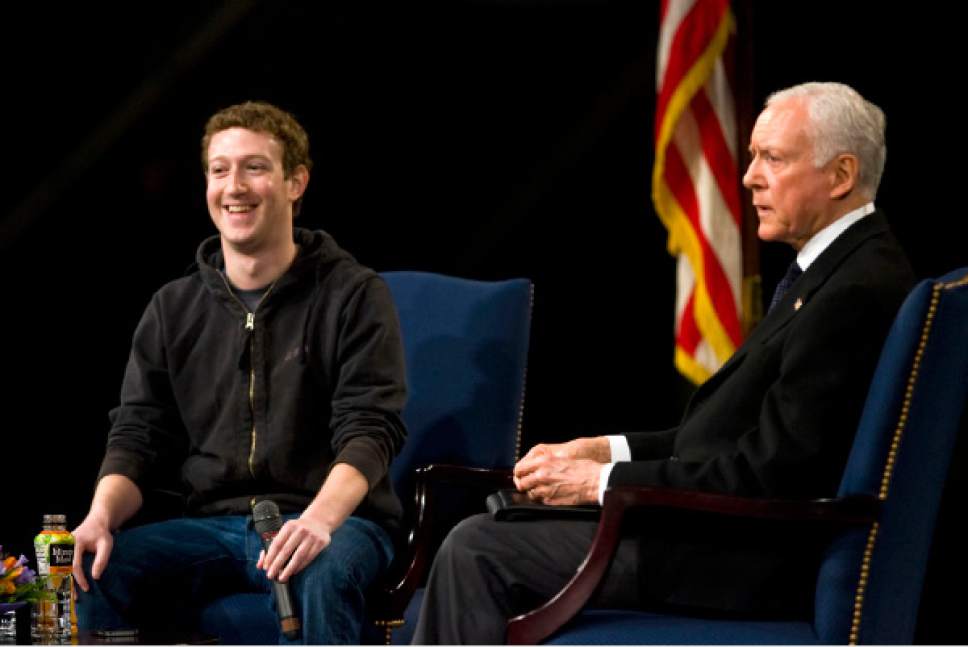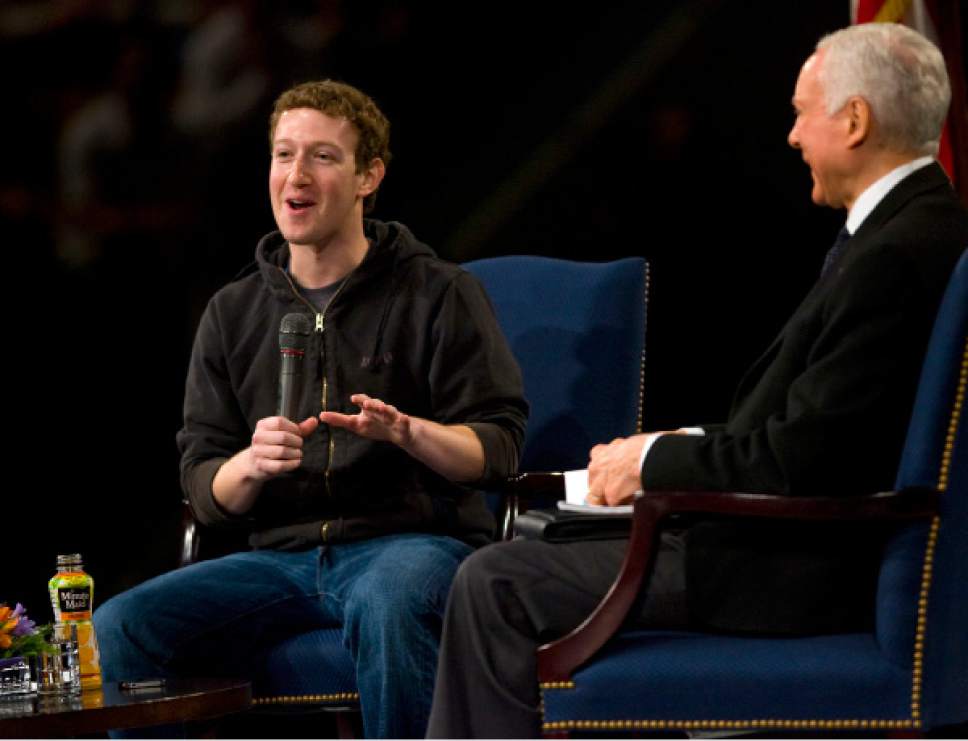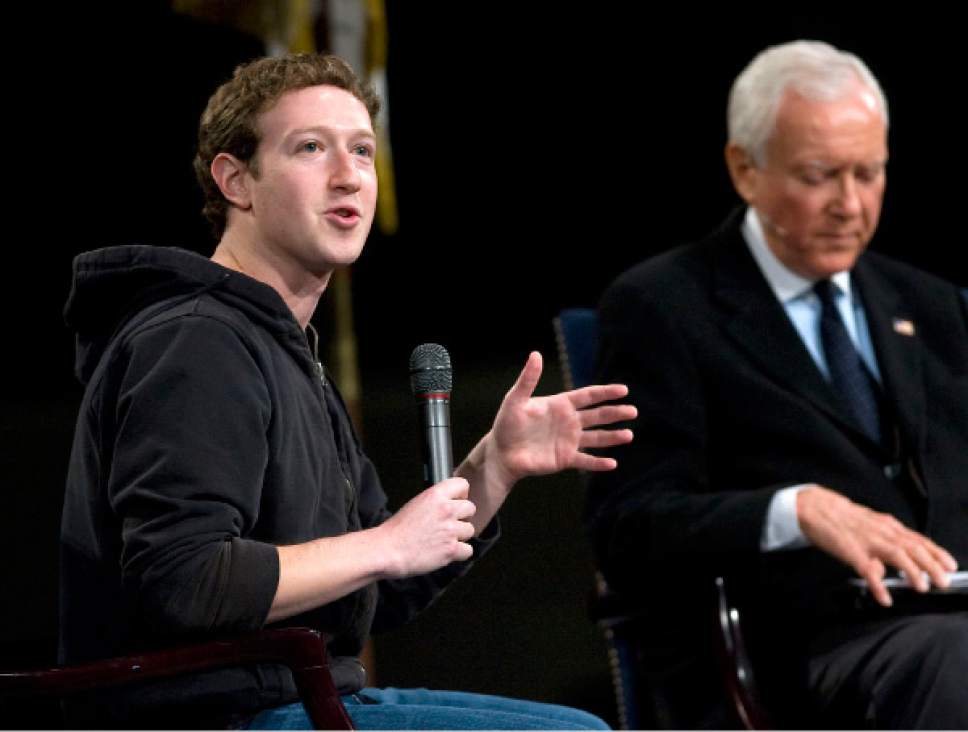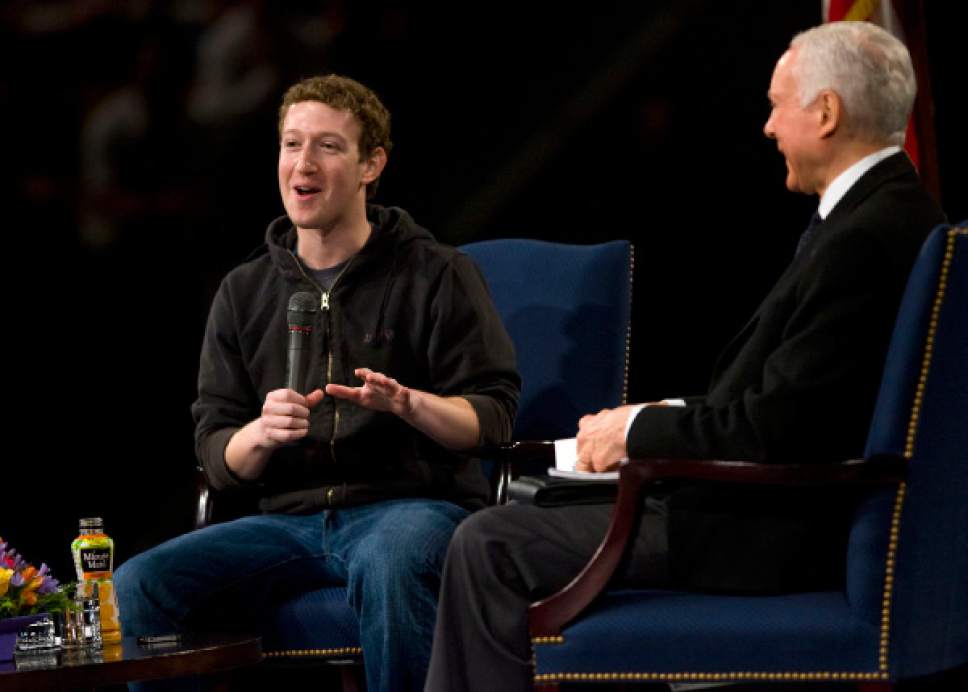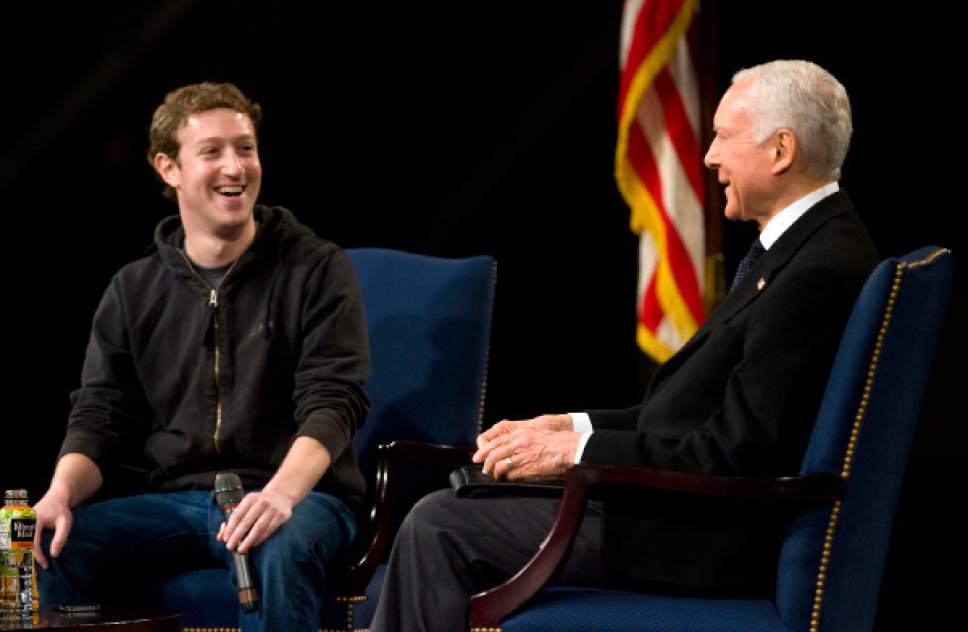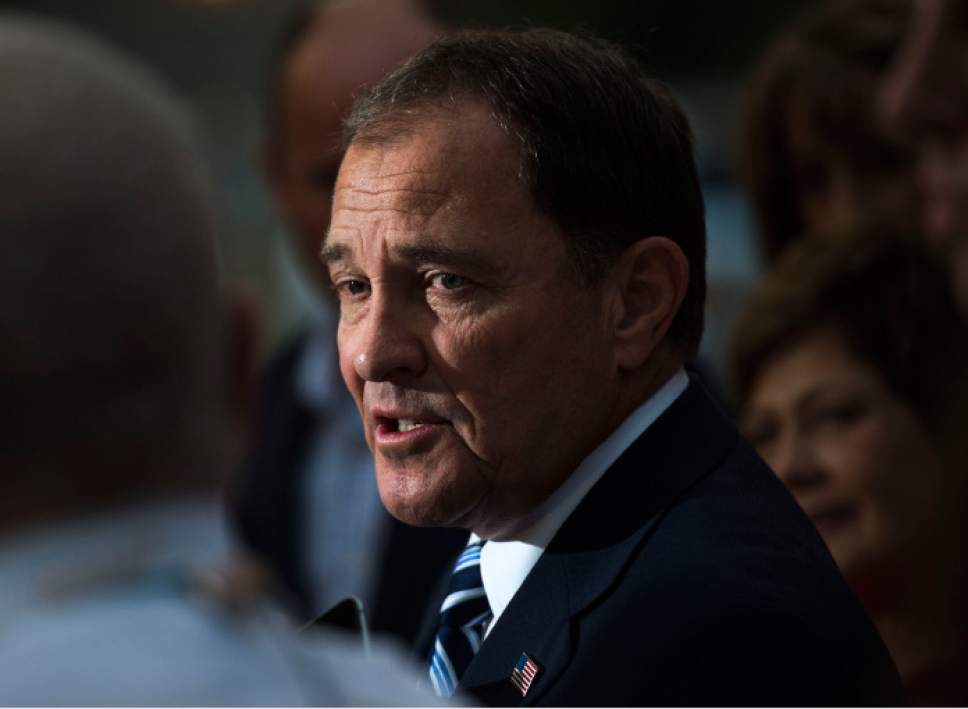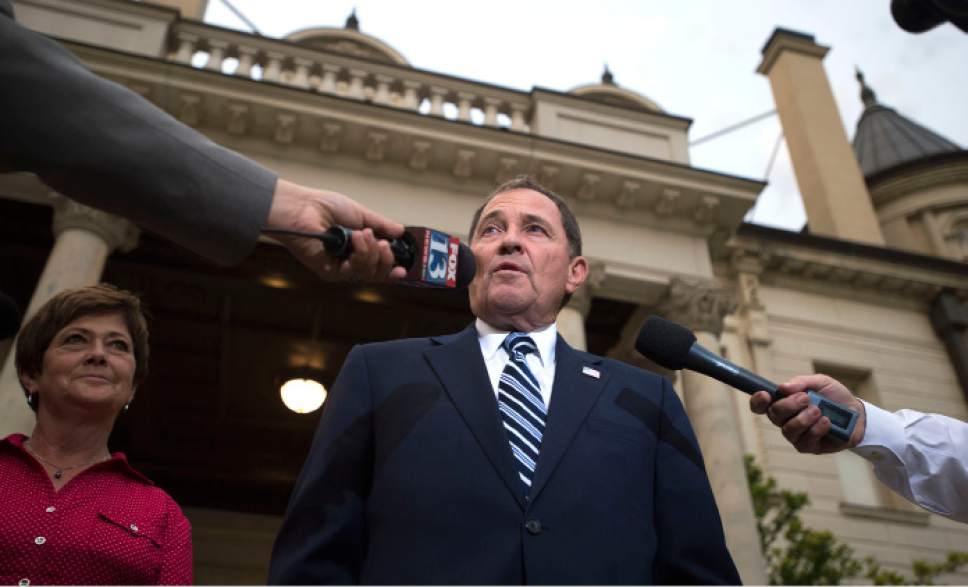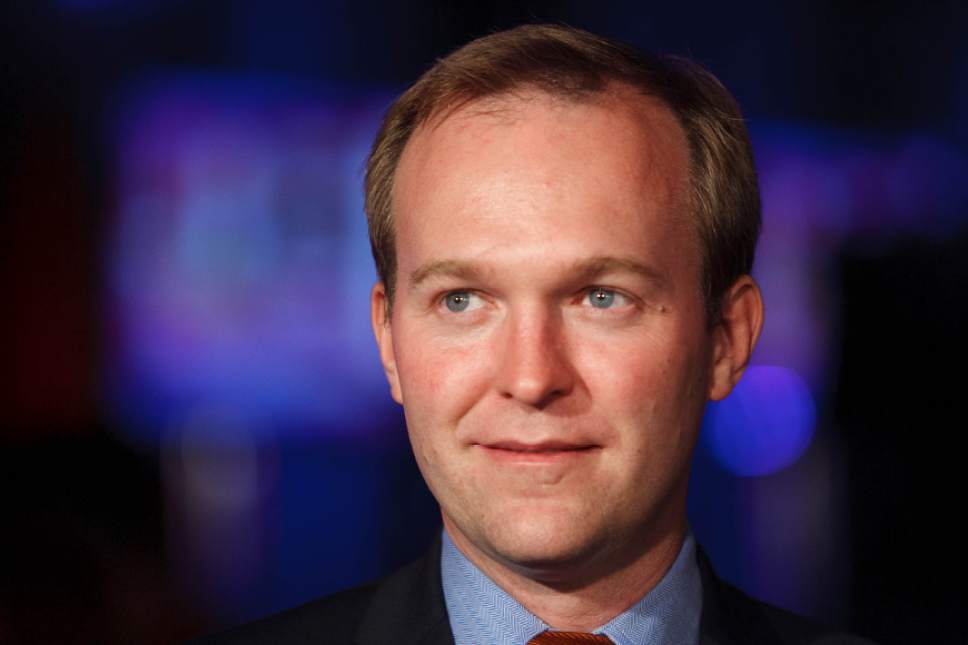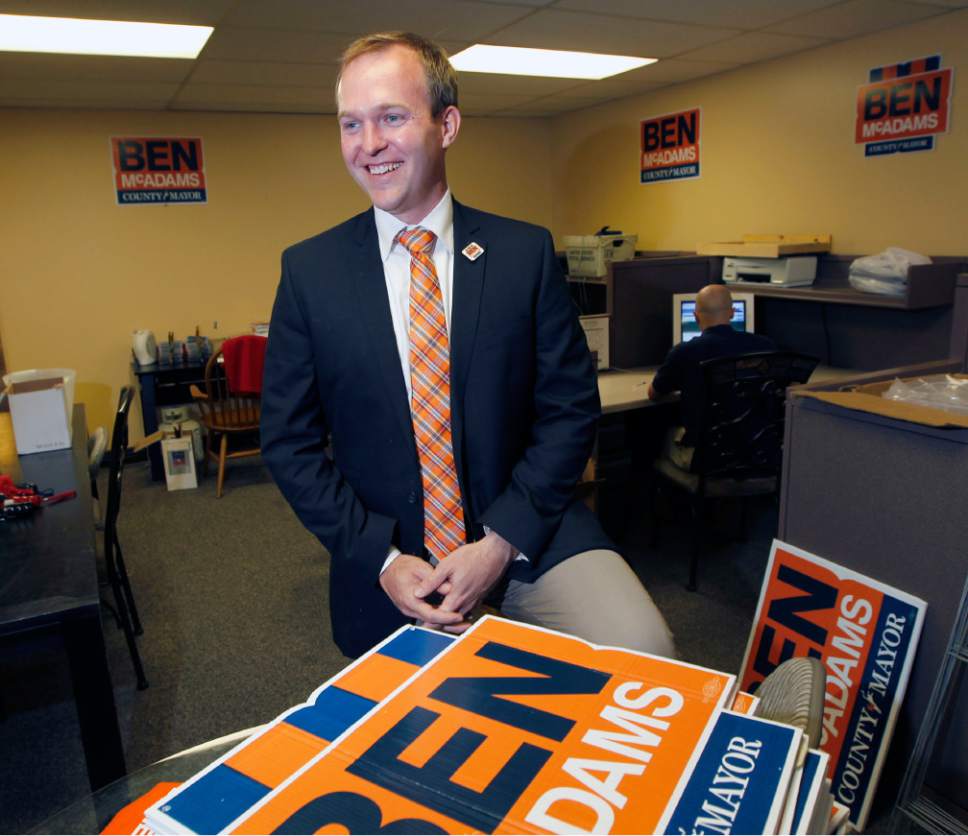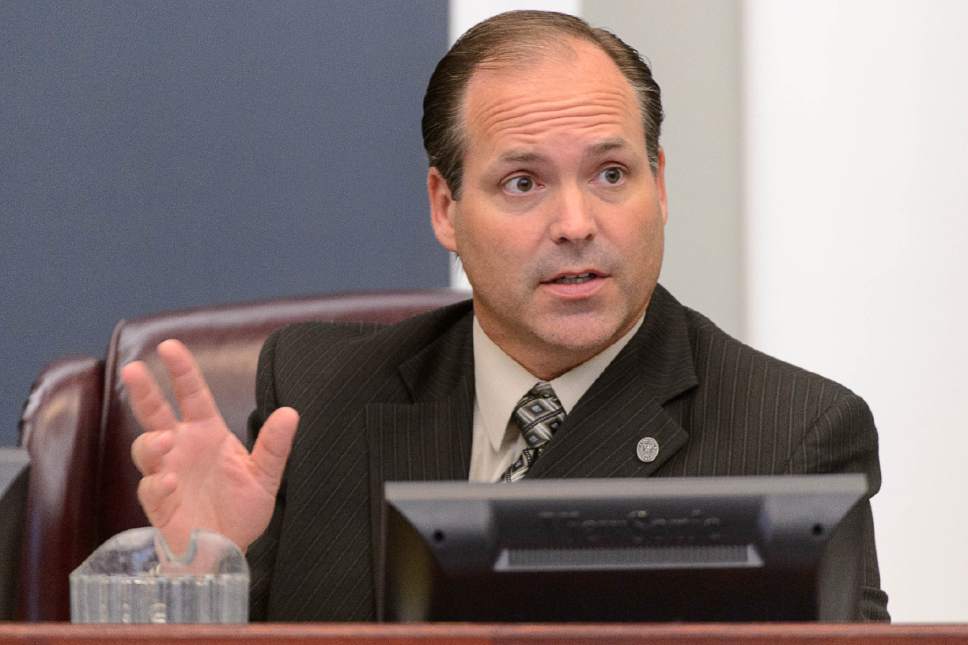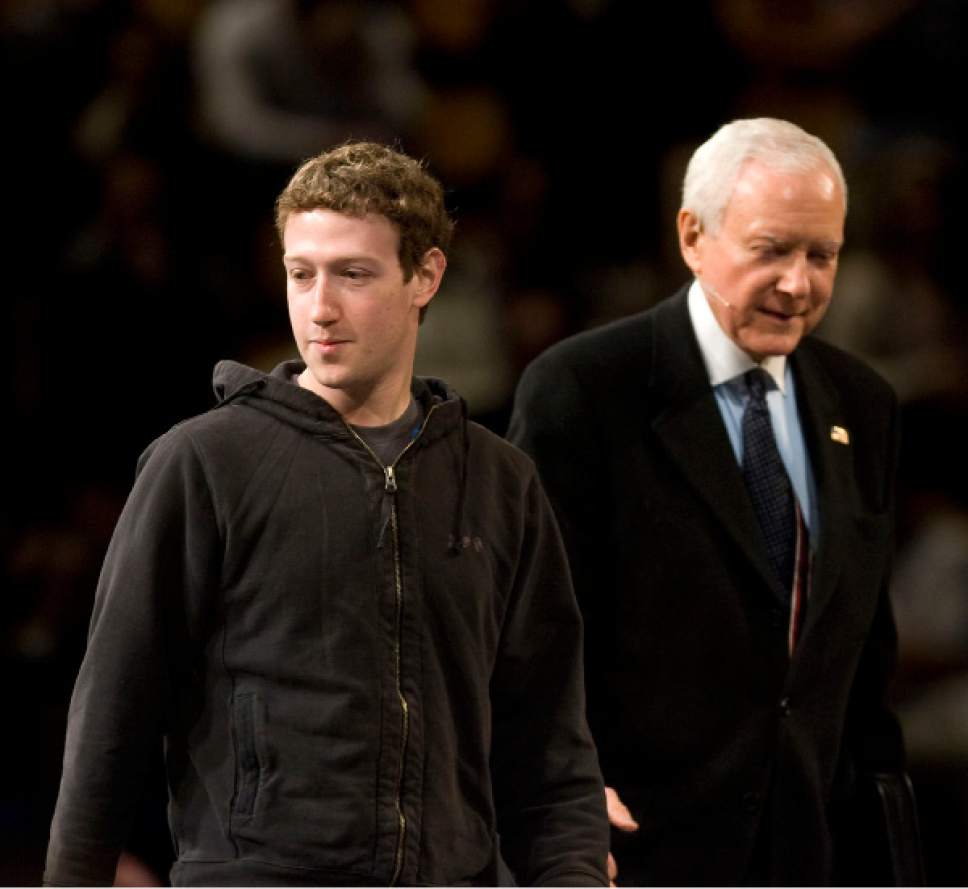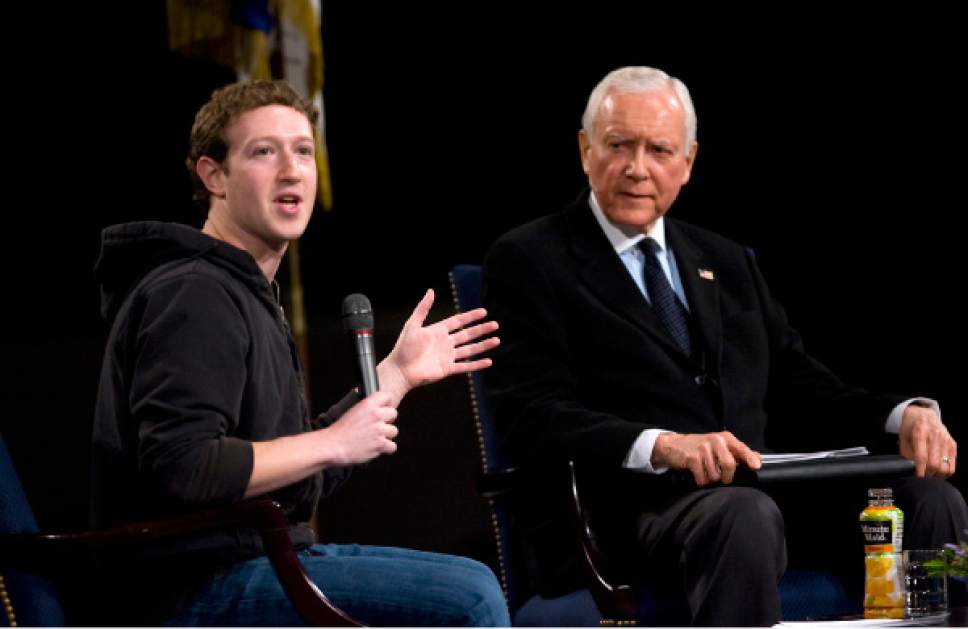This is an archived article that was published on sltrib.com in 2016, and information in the article may be outdated. It is provided only for personal research purposes and may not be reprinted.
On the outskirts of West Jordan, just outside of Copperton and at the base of the Oquirrh Mountains, is a sprawling, dusty field where Vicky Jones' family has been dryland farming since just after the end of World War II.
It was on this relatively barren land that West Jordan officials envisioned a massive, 1,700-acre technology park, anchored by six vast warehouses that could house untold terabytes of Facebook user data, shuttling friend requests and status updates and birthday photos from across the globe.
The allure of landing the world's largest social media company would undoubtedly act as a magnet, officials believed, attracting other high-tech companies to the site and revolutionizing West Jordan from a bedroom community to a cutting-edge technology hub.
And they were willing to give up the farm — not just Jones' farm — to fulfill the goal.
But after months of fractious and at times volatile negotiations and jockeying, the dream was dashed last week when Facebook chose the small New Mexico town of Los Lunas to build its new center.
The demise of the deal brought accusations of political grandstanding, mostly directed at Salt Lake County Mayor Ben McAdams, who derided the deal as giving $200 million from Utah taxpayers to a company worth more than $360 billion.
"This was a bad deal and I stand by my decision to reject it," McAdams said in an interview.
West Jordan Mayor Kim Rolfe blamed McAdams and the county for the failure. The project, he said, would have meant hundreds of millions of dollars for the local economy and thousands of construction and engineering jobs, millions of new dollars for schools and potentially could have lured other tech businesses to the area.
"It is unfortunate that this $1 billion-plus investment in our community was jeopardized by political theatrics," Rolfe said.
While West Jordan and the state entered into non-disclosure agreements, Salt Lake County never signed such a deal, and The Salt Lake Tribune obtained hundreds of pages of emails and documents charting the evolution and ultimate demise of the deal.
—
Project Discus — It started simply enough • On Jan. 14, just before the Martin Luther King holiday, cities across the Wasatch Front received a notice from the Economic Development Corporation of Utah — a quasi-governmental agency.
"EDCUtah has been engaged by a consultant for a California-based (Fortune 250) company that is searching for a new enterprise data center location in North America," the notice read.
Code-named "Project Discus," the company sought between 120 and 150 acres within 30 miles of an airport and 40 minutes from a metropolitan area. There would be a capital investment of $250 million and the creation of a rather paltry 30 to 50 jobs.
At least four areas were identified as potential targets — West Valley City, a parcel straddling the border of Riverton and Herriman, West Jordan, and a fourth site, presumably South Jordan.
It didn't take long for all but West Jordan to fall away, deterred by the incentive package Project Discus was seeking.
Documents show Facebook was looking for a deal similar to what it got in Iowa: complete exemption from sales tax and property tax in exchange for annual payments starting at $50,000 a year and climbing to $150,000 — for total tax breaks worth over $300 million.
It was too rich for West Valley, said City Manager Wayne Pyle. "We were definitely serious about pursuing it, but in our return-on-investment analysis" it didn't pass muster, Pyle said. "A data center, kind of in itself, is pretty limited overall in what it's going to bring in, so we really didn't incentivize that much."
West Jordan, though, went all-in, quickly ting aside a 1,694 Economic Development Area (EDA) on March 31. The rush let the city sneak in under the deadline of a new law requiring the set-aside of 10 percent of the value of the development for affordable housing.
"We beat it by about 12 hours," said West Jordan City Manager Mark Palesh.
—
On the radar • By that time, other states were already well down the road of courting Project Discus. New Mexico officials first met with company executives in June 2015 and by that August, Gov. Susanna Martinez led a team to northern California to make the pitch for Los Lunas to Facebook.
The village is home to about 15,000 people, situated 25 miles south of Albuquerque and sits along the Rio Grande River. It doesn't have the fiber optic thoroughfares that West Jordan offered and is in a drier climate — an issue for a facility that will ultimately demand up to 4.8 million gallons of water per day.
But Los Lunas had two distinct advantages: It wanted the project badly and a united group of city and state officials were eager to make its case.
The city and state agreed to a far more generous of incentives than was ever considered by West Jordan. New Mexico has reportedly agreed to charge no taxes for 30 years and take $50,000 a year from the company, with the annual payments escalating in later phases of the project.
The state has thrown in $10 million in additional tax rebates and the city has agreed to borrow $30 billion to build up the state's renewable energy resources.
—
Fractures form • As New Mexico officials were pushing hard to woo Facebook, Salt Lake County economic-development staff members were becoming increasingly concerned about the terms West Jordan was considering.
Emails show the county and Jordan School District were extremely reluctant to go along with Facebook's request to make payments instead of reducing tax payments. The two government agencies wanted a more traditional deal — giving the company a 75 percent property tax break initially, climbing to 100 percent in the latter phases of the project.
On June 21, McAdams — through his director of economic development, Stuart Clason — pushed the city to include the affordable-housing money in the deal and for the county to receive a portion of the $3.6 million administrative fee, but was met with stern opposition from the city.
In an email to Erin Laney with EDCUtah, Palesh lays into Clason.
"When I read this missive from Stewart [sic], I about came out of my chair. There will be NO Affordable Housing Set-Aside, and any Administrative Fee will be to the City EDA, NOT the County," Palesh wrote. "If Stewart [sic] wants to nix this deal, he is doing a great job."
In a separate email, a Facebook official reiterated that the affordable housing set-aside, which would carve millions out of the tax break, was not an option.
"I hate to put things in doomsday terms, but this potential modification would be bad," the Project Discus representative wrote.
(One likely fallout of McAdams' push is that Sens. Wayne Harper and Curt Bramble — vocal supporters of Project Discus — are planning legislation to repeal the affordable housing set-aside in the upcoming legislative session.)
Relations began to deteriorate further with spats over meeting schedules and locations and apparent threats from Palesh to cut the county out of the discussions entirely. But with Jordan School District and several other taxing entities on board, all West Jordan had to do was win over the State School Board. In that event, Salt Lake County's opposition would be meaningless.
—
Gov. Gary Herbert weighs in • After Pioneer Day, perhaps sensing the deal was in trouble, Gov. Gary Herbert got involved, contacting McAdams to encourage him to support the deal. McAdams expressed the same concerns, in part because the terms were still difficult to pin down.
Projections on jobs ranged from 100 to as many as 300. Promised salaries were anywhere from $50,000 to $90,000. The acreage of the EDA remained at nearly 1,700 — almost 10 percent of the entire city of West Jordan — but Facebook wanted just 230 acres.
"Information about the deal wasn't forthcoming," McAdams said in an interview. "The terms weren't made available until the 11th hour and when we became aware of them, they were not acceptable and clearly not a good deal for taxpayers."
On Aug. 1, Herbert summoned the city, county and other parties to his office to try to hash out a deal, but the county was unswayed."The Project Discus proposal still leaves me questioning whether the economics do right by the taxpayers we are both elected to represent," the mayor wrote Herbert in an Aug. 4 letter.
Palesh said McAdams' public criticism of the deal did not go unnoticed by Facebook.
"A couple times Facebook came and said, 'Our corporate image is worth millions to us,'" he said. "Mayor McAdams trashed their name so badly that that [entered] into their final decision."
Val Hale, director of the Governor's Office of Economic Development, also was apparently up by McAdams' refusal to budge. According to an email between county staff members, Hale threatened to steer all future economic development projects to Utah County.
Business recruiting is competitive and "companies locate where their investment and employees are welcome," Hale said in a statement. His conversations with McAdams were intended to make sure the county was committed to "maintaining an environment that is attractive to business growth," he added.
But Hale said GOED is working on several important projects with Salt Lake County.
—
'Zombie' deal • The State School Board typically follows the lead of the local school board — and in this case Jordan School District was behind the project. But state school-board members were uneasy with the size of the incentive and searched for some middle ground. On Aug. 23, it approved the package, but with a $100 million cap on the first phase of the project — a largely cosmetic limit meant to ease the board's heartburn.
In a stunning turn, West Jordan announced the deal was dead, congratulating Los Lunas on winning the site, apparently without first consulting Facebook.
The declaration of death was premature — McAdams called it a "zombie" deal — and West Jordan quickly backtracked, announcing less than 12 hours later that it was too good of an opportunity for Utah to pass up, "so we have been working throughout the night and will continue through the day to keep the project alive."
But Palesh said that there was little ongoing contact with Facebook.
"We never entered into any more negotiations after that point. I think that was wishful thinking on the part of some elected officials," Palesh said.
The last, best offer that Facebook would get was on the table. And the company walked away, announcing last Wednesday it had chosen Los Lunas.
"It was ours to lose," said Palesh, "and basically by one vote we gave it to New Mexico."
The company plans to break ground on the facility later this year and the data center should go online late next year.
And, for now at least, Vicky Jones' field in West Jordan will remain empty.
Twitter: @RobertGehrke


